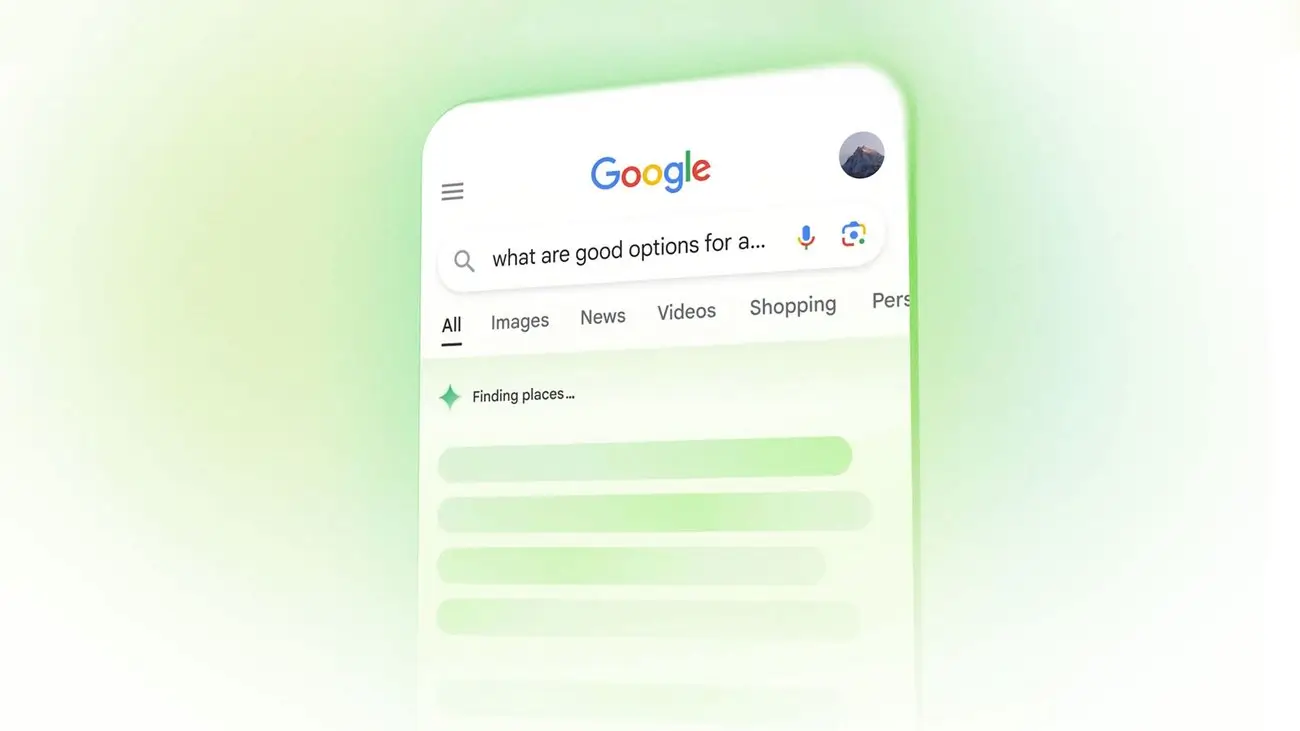Publishers are staring at numbers that spell out their digital nightmare. Google’s AI Overviews have moved from experimental feature to traffic executioner, with new research showing the true scale of damage to news websites.
The data comes from Authoritas analytics, which tracked what happens when Google’s AI summary boxes appear above traditional search results. Sites that previously held the coveted first position now watch 79% of their traffic disappear when pushed below AI-generated summaries.
This isn’t gradual decline. It’s immediate amputation of audience flow that news organizations have relied on for two decades.
The Traffic Collapse Evidence
The mechanism is brutally simple. Users search for information, see Google’s AI summary at the top, get their answer, and never click through to source websites. Traditional blue links get buried below the fold where most people never scroll.
A separate Pew Research Center study examined almost 69,000 Google searches over one month. Users clicked links under AI summaries just once every 100 times they appeared. That’s a 1% clickthrough rate where publishers once expected 20% to 30% from top search positions.
MailOnline has already measured real-world carnage. The site documented clickthrough rates dropping 56.1% on desktop and 48.2% on mobile whenever AI summaries appeared above their content.
These aren’t projections or estimates. They’re actual traffic measurements showing how AI Overviews are reshaping information consumption across the web.
The Authoritas research also revealed that YouTube links maintain prominent placement even when AI summaries dominate results. YouTube happens to generate billions for Google’s parent company Alphabet, while external news sites contribute nothing to Google’s revenue.
Publishers have repeatedly asked Google for data to analyze these patterns independently. The company has refused every request, forcing news organizations to rely on third-party studies.
Why This Threatens Digital Journalism’s Foundation
Most news websites built their business models around search traffic, particularly Google referrals that historically drove 20% to 40% of total audience. Those visitors generate advertising revenue, newsletter subscriptions, and paid conversions that fund actual journalism.
When Google’s AI satisfies user curiosity without requiring clicks, publishers lose access to potential readers and customers. The economic engine that powers digital news coverage begins breaking down.
Small publishers face extinction-level pressure. Unlike major media companies with diversified revenue streams, independent outlets often depend heavily on search visibility for survival. A 79% traffic reduction can mean the difference between staying open and shutting down.
The research has been submitted as evidence in a legal complaint to the UK’s Competition and Markets Authority, led by tech justice group Foxglove alongside the Independent Publishers Alliance and Movement for an Open Web.
Google’s Pushback Strategy
Google dismissed the Authoritas findings, calling the study “inaccurate and based on flawed assumptions and analysis” while claiming it used “outdated estimations and a set of searches that did not represent all the queries that would generate traffic for news websites.”
A Google spokesperson said: “People are gravitating to AI-powered experiences, and AI features in search enable people to ask even more questions, creating new opportunities for websites to be discovered. We continue to send billions of clicks to websites every day, and we have not seen dramatic drops in aggregate web traffic as is being suggested.”
The company also criticized the Pew Research methodology, saying it used “flawed methodology and skewed queryset that is not representative of search traffic.”
But Google won’t release granular data that would allow independent verification of these claims. Publishers remain locked out of information about how AI Overviews specifically impact their sites.
Industry Response and Legal Action
Owen Meredith, chief executive of the News Media Association, accused Google of trying to keep users “within its own walled garden, taking and monetising valuable content – including news – created by the hard work of others.”
“The situation as it stands is entirely unsustainable and will ultimately result in the death of quality information online,” Meredith said. “The Competition and Markets Authority has the toolkit to tackle these issues. It must do so urgently.”
Rosa Curling, director of Foxglove, said the research demonstrated the “devastating impact that Google’s ‘AI overviews’ are already having on the UK’s independent news industry.”
“It would be bad enough if Google were simply stealing journalists’ work and passing it off as their own,” Curling said. “But worse still, they are using this work to fuel their own tools and profits, while making it harder for media outlets to reach the readers they rely on to sustain their work.”
What Happens Next
The UK’s Competition and Markets Authority now holds power to establish global precedent for regulating AI-powered search features. Their decision could determine whether tech platforms must share revenue when reproducing copyrighted material or provide transparency about traffic impact.
Publishers are exploring defensive strategies. Some experiment with paywalls preventing Google from accessing content for AI training. Others optimize specifically for AI summary inclusion, treating Google’s AI as another distribution channel rather than fighting its existence.
Meanwhile, Google continues expanding AI Overviews to more query types and geographic markets. The company appears committed to this search evolution regardless of publisher concerns.
The collision between artificial intelligence and digital media economics will reshape how information flows across the internet. Whether news organizations survive this transition depends partly on regulatory intervention and partly on their ability to find new revenue models that don’t rely on search traffic.
Can independent journalism adapt to an AI-dominated search landscape, or will Google’s summaries kill the content ecosystem that makes search valuable in the first place?
Sources: The Guardian





















